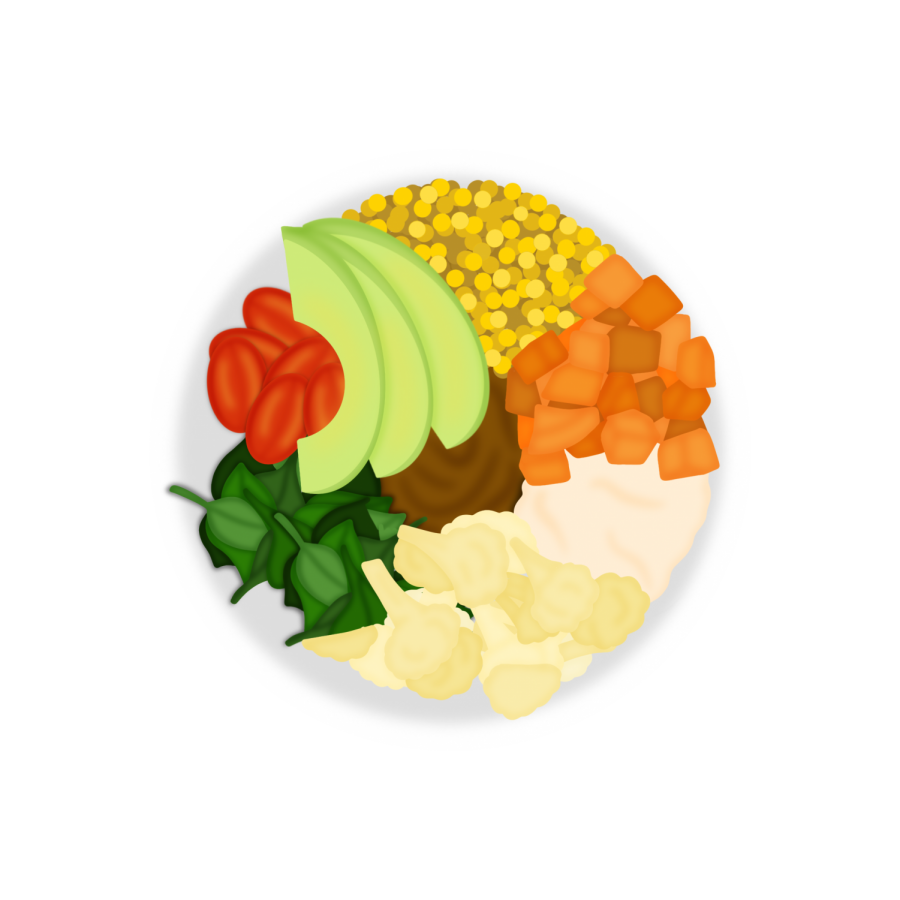Feed your body, feed your soul
September 21, 2021
If you could, for just a moment, imagine the life of a wild animal. This can be any wild animal of your choice—it could be a bear, a lion, a wolf—anything your beautiful mind can think of. Now, think of the way that an animal eats. The reason why animals eat is for a very simple reason: because they are hungry. They require the nutrition to keep them alive and healthy so they are able to survive, procreate and reproduce the healthy offspring you see on Discovery Channel. These animals eat because it is their nature to survive; there are no “ifs or buts” to them when it comes to survival. Food is needed and that is non-negotiable. They do not weigh their food out into precise measurements; they do not fast in the name of detoxing; they do not ignore their hunger cues, and they do not try to replace their meals for genetically modified sources of nutrition.
Imagine how different this is for people. Specifically, people with eating disorders.
There are several eating disorders I can discuss, but the one I am most familiar with and want to cover is orthorexia nervosa. Orthorexia nervosa is the act of taking healthy eating too far, the paradox of an unhealthy obsession with healthy eating. Mind you, orthorexia can look different to everyone who suffers from it, but it is most present in gym-goers and the health-nuts you see on social media. I can only speak on behalf of people who are incredibly active, but workout-enthusiasts who unknowingly have orthorexia nervosa participate in things like calorie counting or purposeful deficits, restrictive diets, meal replacements (namely protein shakes) and most likely anything you’ve heard on the radio, television, and social media about weight loss. These actions are taken to ensure that only “pure foods” are consumed and advocate for “clean eating.”
Unfortunately, I suffer from orthorexia nervosa as I have been incredibly active my entire life. I started martial arts when I was eight years old and became a second degree black belt in Taekwondo when I was eleven. Around the time I was thirteen, I began to teach myself how to dance and threw myself into the art. Shortly after, I joined the Navy JROTC program when I was sixteen and became incredibly invested in weight lifting and running. When I was able to cut down my mile time to seven minutes, I moved onto another form of martial arts. At seventeen years old, I began my journey in Wing Chun Kung Fu as well as Shaolin and Tai Chi, and today, at nineteen years old, I’m in the process of teaching myself Thai Boxing.
I know my journey so far sounds impressive, but at nineteen years young, I have chronic knee pain, neck pain and a horrible relationship with food. It is hard to eat anything “unhealthy” without feeling guilty, and everyday is a struggle to force myself to eat properly before and after workouts so I don’t pass out and fall victim to my own foolishness. Food is no longer fuel, it has become an obligation.
Exercising my body took precedence over feeding it; I would push myself until my feet gave out and my arms would hang limp at my sides. Every set that burned by biceps was a sign that I needed to add more weight, do more reps, get fitter and feel stronger, but with every physical goal I set for myself, my relationship with food took an even deeper nose dive into a depressive black hole that did nothing but fester within me like a disease. There was nothing I could do about it but fall victim to my own thoughts, and it is only recently that I admitted to myself that this is not normal.
Food is not the enemy. It never was. The journey to recovery is excruciating and it is so uncomfortable, but it is the path to a better life—a freer life.
With that being said, orthorexia nervosa has an enormous presence in the fitness community. Plenty of powerlifters, cardio lovers and calisthenic enthusiasts suffer from orthorexia without even knowing it. This is because of how much orthorexia is praised at the gym where self-destructive behaviors are looked up to and modeled as the “ideal life” in the name of body building and weight loss. In a culture where a fabricated sense of beauty and fitness is worshipped and placed on a pedestal, it is difficult for people to acknowledge what they feel and how to approach it without feeling alienated.
If there is anything I want the audience to take away from this, it is this: if you are a fellow gym rat like me and spend a lot of your time thinking about food and how such a thing can be “improved” while consuming it, I implore you to reconsider your perspective. Food, any kind of food, is good for you. Media will portray fatty foods as evil one day and then carbohydrates as a threat the next day. They will skew the findings of corrupted scientists and make you believe that you are not allowed to eat when in fact, you are. You have all the permission to eat. Trust your body to process what is needed and get rid of what is not. As someone who is in the process of recovery, I can say that it feels so good and so liberating letting myself eat what I want when I want. My body is still lean, and even if I gain weight, it has never been more clear to me that this is the weight I was supposed to be. Our bodies do so much for us, so let’s do our best to give back to the very vessel that gives us life.







